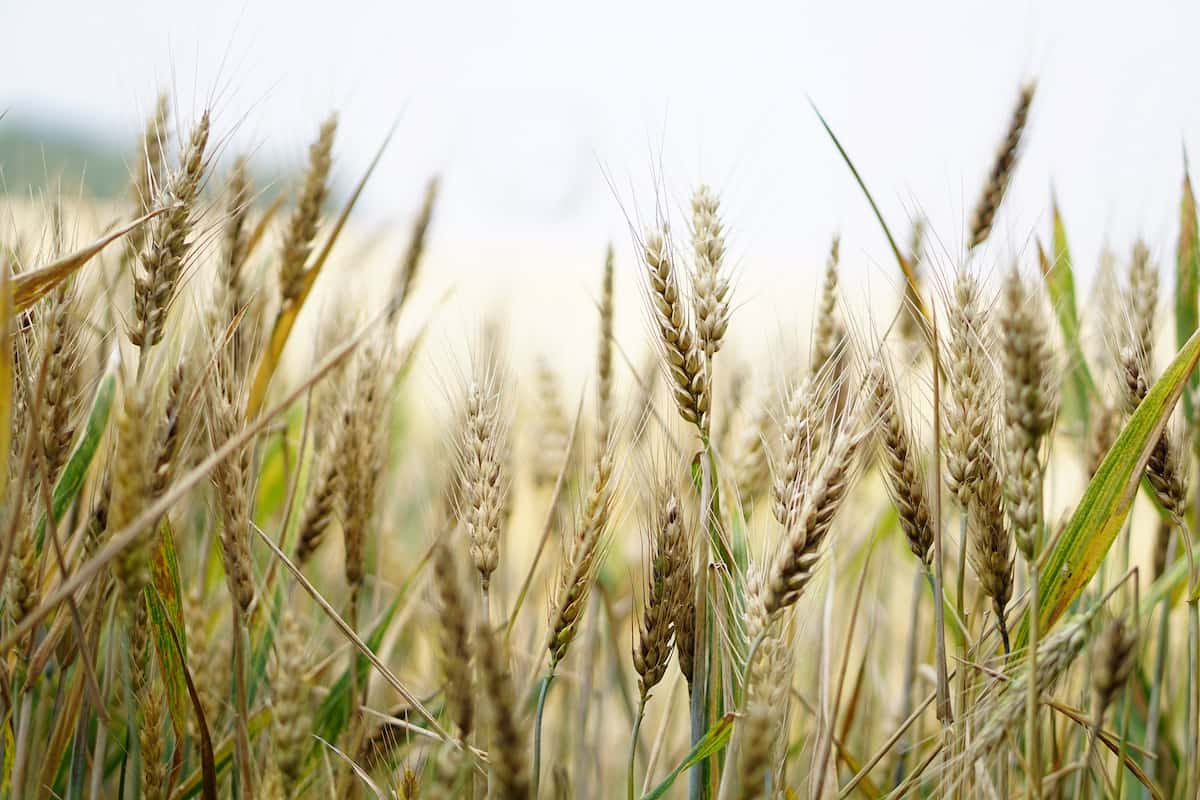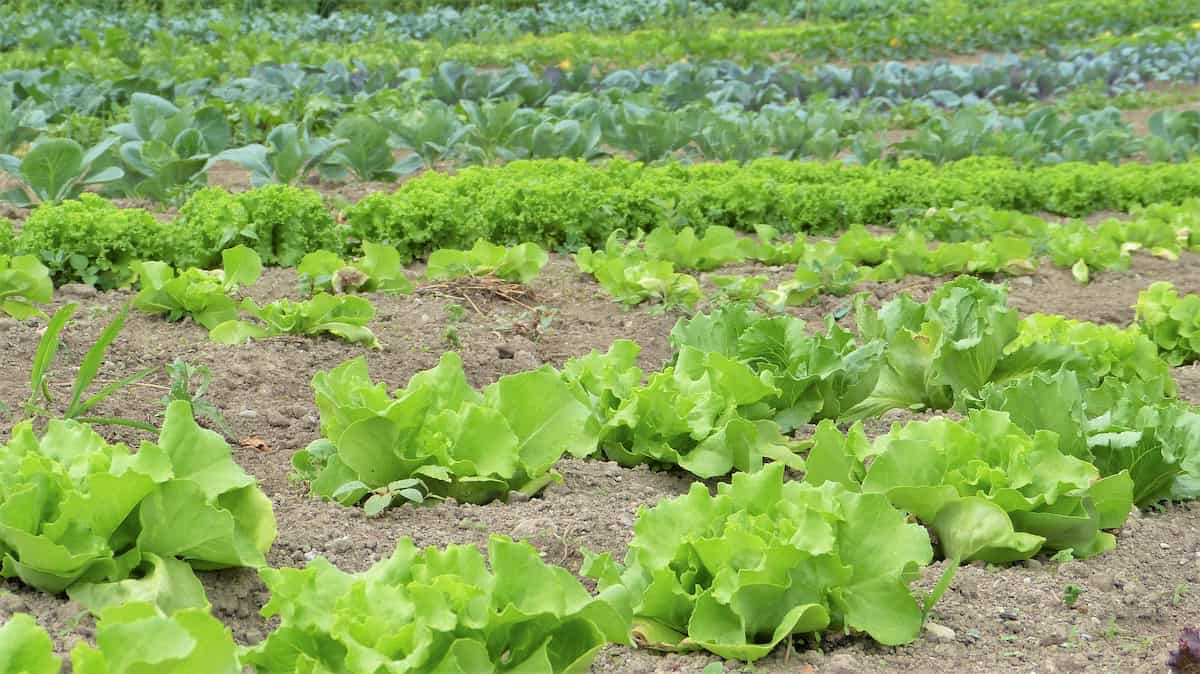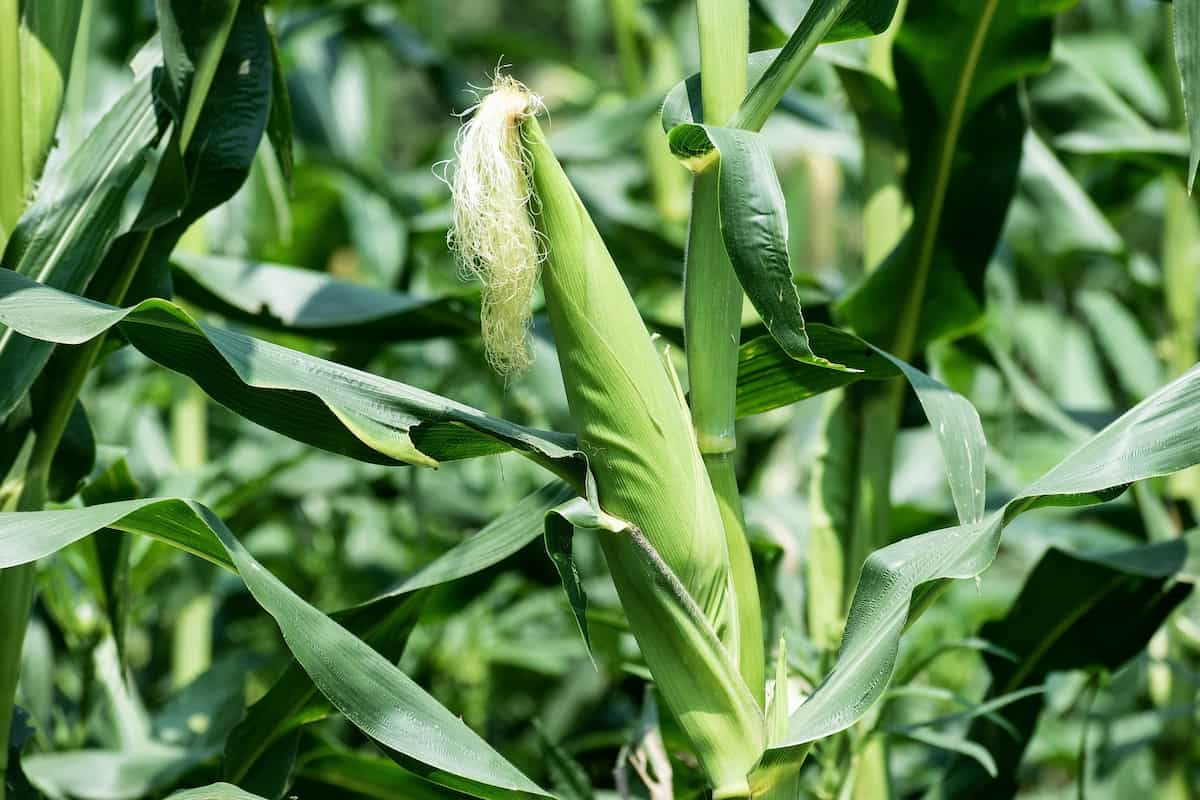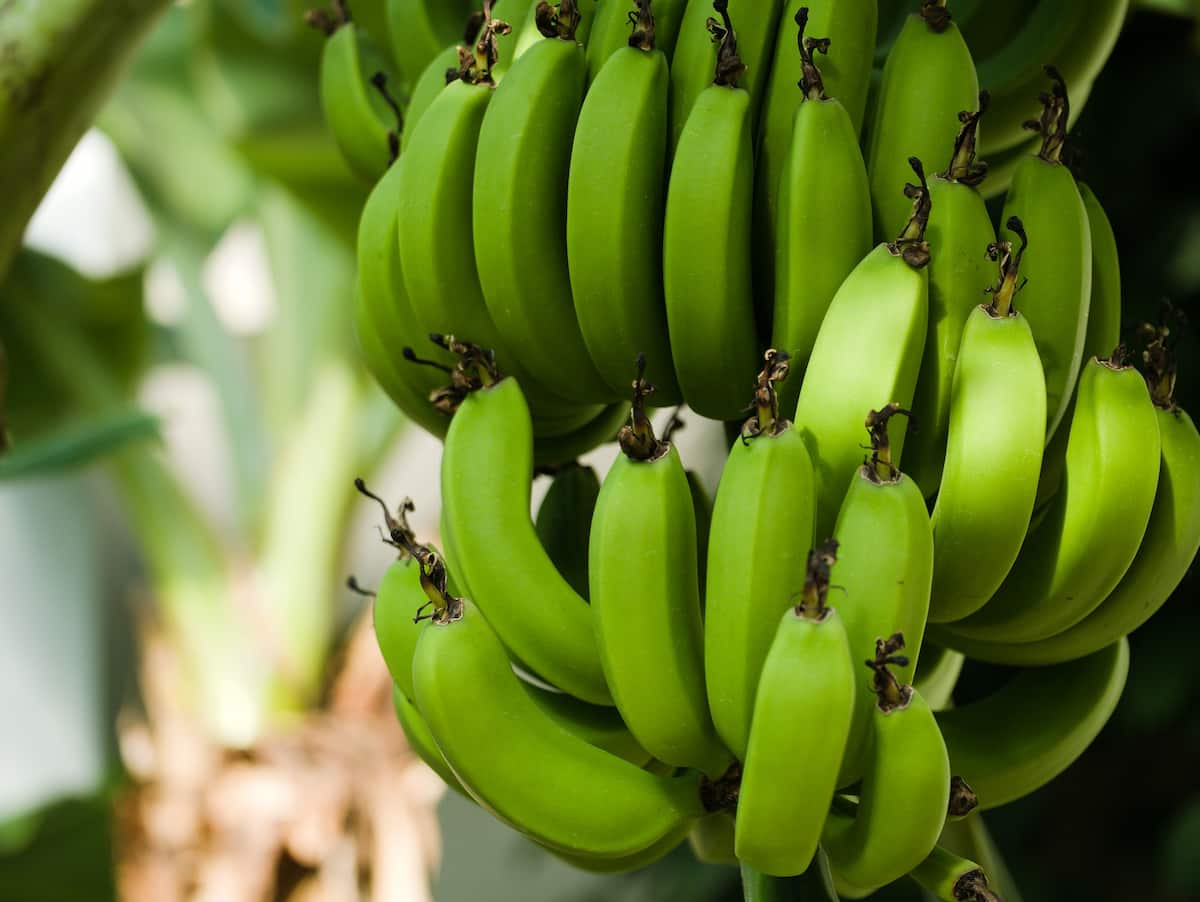Organic farming is becoming more popular in South Africa because it concerns the environment and respects human rights. The soil is healthy and fertile, and pests are controlled, which makes organic farming an efficient way of agriculture. The yields from organic farms can be two to three times higher than conventional farms. However, some initial costs need for the farmer, such as research into organic farming methods, certification, and insurance.

How to start organic farming in South Africa
What is organic farming?
It is a type of agriculture that relies on practices that are not harmful to the environment or the health of the people who produce food. In addition, organic farming can help to create a more positive image for traditional agriculture, which could help to attract new investors and businesses to the sector.
Organic farming importance in South Africa
Organic farming is important in South Africa for several reasons. First and foremost, it provides farmers with a more sustainable way to produce their crops. By relying on natural methods, organic farming helps preserve the environment while producing healthy and tasty food. Another reason why organic farming is popular in South Africa because it requires fewer inputs than conventional farming. Farmers can save money by using fewer pesticides and other chemicals, which can harm the environment and human health.
Steps to start an organic farming business in South Africa
- First and foremost, research the market conditions and determine the most profitable crops. You must also ensure you have the right tools and resources to start. Once you have finalized your plans, it is time to find farm partners.
- To successfully operate an organic farm, you will need a team of people who are passionate about the environment and willing to put in the hard work.
- To start organic farming in South Africa, you must first research the specific regulations that apply to your region. Then, once you understand the regulations, you must create a plan for starting your farm. Finally, you will need to find what type of organic farming you want.
- Several options are available, including Integrated Farm Management Systems (IFMS), natural farming methods, and crop rotation. Once you have decided on an approach, you will need to find land suitable for organic agriculture and begin scouting potential farms. Once you have found a site, you will need to develop a detailed plan for getting your farm up and running. This includes obtaining permits, acquiring necessary equipment and supplies, and raising funding.
- Finally, be prepared for some initial challenges – organic farming is not easy money. However, your organic farm could thrive with dedication and hard work within a few years.
- Once your farm is operational, it is important to continue developing and maintaining it through regular inspections and updates.
Problems of organic farming in South Africa
The problems of organic farming in South Africa are many and varied. One of the most common is insufficient organic production to impact the environment significantly. Another issue is that many South African farmers do not have the knowledge or equipment to produce quality organic crops.
Moreover, many landholders who could benefit from organic farming refuse to switch to this type of production because they believe it is too expensive. In some cases, large-scale commercial farmers have taken advantage of small-scale producers by selling them inferior organic products at high prices. This has led to a situation where very few farmers can make a living through organic farming.
Organic vegetable farming in South Africa
- South Africa is one of the most diverse countries, with vast landscapes and climates. This makes it an ideal place to grow organic vegetables, as there are various ways to do so.
- One popular way to farm organic vegetables in South Africa is in raised beds. These beds are created by stacking up several centimeters of soil and then bundling the soil with wire or fencing to create a rectangular shape. This allows for good air circulation and drainage, which is important for keeping plants healthy.
- Another popular way to farm organic vegetables in South Africa is using a crop rotation system. This system involves alternating different types of plants in your vegetable garden so that pests don’t get a foothold and you can maintain consistent yields over time.
- There are many other ways to farm organic vegetables in South Africa, so feel free to experiment! Just be sure to consult with your local Extension office or specialist before starting, as they can advise you on the best way to grow your food using sustainable methods.
In case you missed it: Dairy Farming in South Africa: Breeds, How to Start

Certified organic farms in South Africa
Some certified organic farms in South Africa follow the National Organic Standards Authority of South Africa (NOSA) guidelines. These farms must meet specific criteria, including a minimum land area of 2,000 hectares and a farming system that relies on organic methods, natural resources, and biodynamic principles. The certification process can be time-consuming and expensive, but it is highly respected in the organic community. Some benefits of being certified include increased yields and reduced environmental degradation.
What are the organic farming practices in South Africa?
There are many organic farming practices in South Africa. The most important thing is to use natural pest control methods, such as spraying natural herbicides or using predator/prey relationships to help control pests. Another important aspect is working with nature to create an environment conducive to good plant growth. This means choosing a site that has good drainage and sufficient sunlight. Finally, it is important to use sustainable practices such as planting diverse crops and using cover crops to maintain soil fertility.
In case you missed it: Bee Farming in South Africa: How to Start, Beekeeping Cost, and Profit

Is organic agriculture applicable in South Africa?
Organic agriculture is becoming more popular in South Africa because it helps to maintain the environment and improve soil health. The government supports organic farming through subsidies and other programs, which have helped to increase the number of farms using organic practices.
Organic soil management in South Africa
Organic farming is a sustainable agricultural production system that relies on techniques that are not harmful to the environment and human health. To achieve organic certification, farmers must comply with specific guidelines set by the organic authority. These guidelines focus on crop production, animal husbandry, and soil management.
Pest and diseases management for organic farming in South Africa
Several pests and diseases can affect organic farming in South Africa. These include problems with insects, weeds, and diseases. Insects can be a major problem for organic farmers, as they can damage crops and cause disease. Weeds can also be a problem for organic farmers, as they compete with crops for resources and space. Finally, diseases can also be a big problem for organic farmers, as they can kill crops or reduce their yield.
Organic farmers in South Africa often use natural methods to manage pests and diseases. This includes using pesticides only if necessary and using different methods to control weeds. Organic farmers also try to maintain good soil health by working with their local environment to prevent pests and diseases from growing.
Organic farming methods in South Africa
- Crop rotation is the most important organic farming method because it helps control pests and diseases. Crop rotation is a practice where different crops are planted in different areas of the same farm over time to help prevent soil erosion and help break down nutrients into usable forms.
- Green weed management is another important organic farming method. Green weeds grow quickly and have dense foliage, making them difficult to control with conventional herbicides. So instead, farmers often use tillage methods, such as minimum or no-tillage techniques, to reduce the number of green weeds. No-tillage techniques allow farmers to replant the soil without disturbing it too much, which helps to improve fertility and water retention in the soil.
- Cover crops are planted over winter months to help improve soil fertility and protect against erosion. Some popular cover crops include ryegrass, trefoil seedlings, and cowpea vines. Cover cropping is when a crop is grown near a naturally occurring cover, such as trees or shrubs, which helps to protect the soil from wind, rain, and sun damage.
- Composting is when organic materials are combined with water to form an unstable mixture that decomposes slowly. This process helps to improve soil fertility and reduce the need for fertilizer products.
Which organic crops are grown in South Africa?
Organic farming in South Africa is a rapidly growing industry. Many organic crops are grown in the country, including Wheat, Sunflowers, Maize, and Sugarcane. In addition, many local farmers are beginning to grow organic crops due to their benefits, such as increased crop yields and decreased environmental impact.
In case you missed it: Greenhouse Farming in South Africa: How to Start, Crops, and Cultivation Practices

Nutrient management for organic farming in South Africa
South Africa has great organic farming potential, with fertile soils and plentiful rainfall. However, the country has a very small population, so managing nutrients is critical. One of the biggest challenges for organic farmers in South Africa is finding enough affordable fertilizers and pesticides to meet their needs. In addition, sustainable farming practices require careful management of nutrients, water, and other resources to ensure crop production while maintaining soil health and protecting natural habitats.
Organic farmers in South Africa often use composting and green manure as part of their nutrient management strategy. Composting breaks down organic material into fresh soil amendments that help improve fertility and reduce erosion. Green manuring involves planting legumes such as alfalfa or clover on soils that are not suitable for crops. These plants take up nitrogen from the air and add it to the soil, helping to maintain fertility levels while preventing erosion.
Organic farming certification in South Africa
South Africa has several certification schemes for organic farming, including the Soil Association Organic Farming System (SAOFS), Eco-Cert, and ORGANIC South Africa. Eco-Cert is the most popular certification scheme in the country, with over 2,000 members. It offers a variety of certifications, including ecological farming, organic production system, and biodynamic farming.
Organic South Africa is the national organics body in South Africa and offers a range of certifications, including organic agriculture, organic product processing, and organic food manufacturing. The popularity of organic farming in South Africa is partly due to the country’s high levels of environmental pollution. By practicing organic farming, farmers can help to reduce pollution levels and improve the health of their communities.
Policies under organic farming in South Africa
South Africa had strongly committed to organic farming since the early 1990s when the country’s first organic law was passed. Today, many organic policies are in place across the country, and farmers must comply with various organic regulations. Some of the main policies governing organic farming in South Africa include the following:
- The National Organic Policy (NOP) states that all agricultural land and products must be certified organic if they have been produced using organically managed practices. Any producer can apply for certification. However, all producers who want to sell their products as organics must also obtain a certification mark from an accredited certifier.
- The NOP establishes specific requirements for farm management practices, including the use of cover crops, rotation of crops, and composting. It also requires that all inputs used on an organic farm be organically sourced.
- The Environmental Management Act (EMA) sets out specific requirements for managing pesticides and other agricultural chemicals. For example, pesticides must only be used according to label instructions, and no more than three types of pesticides may be applied to a farm at any time. The EMA also requires that all waste from agricultural production is disposed of responsibly and that farmers establish and maintain realistic water-conservation plans.
In case you missed it: Hydroponic Farming in South Africa: How to Start, Crops, and Cultivation Practices

Organic farming states in South Africa
There is a growing demand for organic farming in South Africa as people become increasingly aware of the environmental and health benefits. As a result, the country has several organic farming states, including KwaZulu-Natal, Mpumalanga, Limpopo, and North West.
- KwaZulu-Natal is one of the most biodiverse provinces in South Africa and is home to a wide variety of ecological zones. This province is also known for its warm climate and fertile soils. There are a total of 34 certified organic farms in KwaZulu-Natal.
- Mpumalanga is another well-known organic farming province in South Africa. It has a total of 33 certified organic farms, making it the second-largest province in the number of certified organic farms. The province has a diverse geography with rolling hills and large valleys. The warm and humid climate makes it ideal for cultivating fruits and vegetables.
- Limpopo is another mid-sized agricultural province rapidly emerging as an important player in the domestic organic food market. There are currently 12 certified organic farms operating in Limpopo. The province has a largely rural population with good soil fertility. The weather is generally warm and dry, with occasional cold fronts during the winter.
- North West is yet another agricultural province that boasts excellent soil fertility and moderate temperatures throughout the year. There are currently 10 certified organic farms operating in the North West province.
Weed management for organic farming in South Africa
The main problem with weed management in organic agriculture is that there are no specific guidelines or recommendations. In general, weed control should focus on preventing weeds and controlling their growth if they do emerge. Strip cropping and crop rotation can be effective at preventing weed emergence. Crop residue left on the ground after harvest can also serve as a barrier to weed growth.
In addition, cover crops (e.g., clover) planted between crops can help to reduce soil erosion and the number of available nutrients to plants that can support Weed growth. Grasshoppers are one of the main predators of Weeds in South Africa, so it is important to keep them active by providing food sources such as birdseed, kitchen scraps, and fresh fruits & vegetables. Providing water in areas where Grasshoppers hide will also help to keep them active.
The challenges of organic farming in South Africa
Organic farming has been gaining popularity in South Africa as the country seeks to reduce its dependence on chemical inputs. However, organic farming faces several challenges that must be overcome to become mainstream in the country. One challenge is that organic farming relies on natural inputs, such as compost and manure, which can be difficult to find or expensive to produce in larger quantities. Another is that organic farmers often have to deal with pests and diseases that are not affected by chemicals and must learn how to manage them effectively.
Finally, some consumers are reluctant to pay more for products that are supposed to be environmentally friendly. All of these challenges need to be addressed if organic farming is to become a major part of the South African food system. Organic farming is becoming more and more popular in South Africa, but the challenges facing organic farming remain. One of the main challenges facing organic farming is finding enough land to grow crops organically. Another challenge is getting people to understand and appreciate the benefits of organic farming.
In case you missed it: How to Start Goat Farming in South Africa: Business Plan, Breeds, Cost, Profit, and Management

Conclusion
Organic farming emphasizes using natural inputs, such as soil, sun, and rain. Organic farming also requires more labor than conventional farming, which can be offset by the fact that organic products often have a higher price tag. In addition, these practices help maintain healthy ecosystems while producing food free from synthetic pesticides, herbicides, and other harmful chemicals.
- Types of Pesticides Used in Agriculture: A Beginner’s Guide
- Economical Aquaculture: A Guide to Low-Budget Fish Farming
- 15 Common Planting Errors That Can Doom Your Fruit Trees
- How to Make Houseplants Bushy: Effective Tips and Ideas
- Innovative Strategies for Boosting Coconut Pollination and Yield
- Pollination Strategies for Maximum Pumpkin Yield
- The Complete Guide to Chicken Fattening: Strategies for Maximum Growth
- Natural Solutions for Tulip Problems: 100% Effective Remedies for Leaf and Bulb-Related Issues
- Revolutionizing Citrus Preservation: Towards a Healthier, Greener Future
- Natural Solutions for Peony Leaf and Flower Problems: 100% Effective Remedies
- Maximizing Profits with Avocado Contract Farming in India: A Comprehensive Guide
- Natural Solutions for Hydrangea Problems: 100% Effective Remedies for Leaf and Flowers
- The Ultimate Guide to Choosing the Perfect Foliage Friend: Bringing Life Indoors
- From Sunlight to Sustainability: 15 Ways to Use Solar Technology in Agriculture
- The Ultimate Guide to Dong Tao Chicken: Exploring from History to Raising
- The Eco-Friendly Makeover: How to Convert Your Unused Swimming Pool into a Fish Pond
- Mastering the Art of Delaware Chicken Farming: Essentials for Healthy Backyard Flocks
- 20 Best Homemade Fertilizers for Money Plant: DIY Recipes and Application Methods
- How to Craft a Comprehensive Free-Range Chicken Farming Business Plan
- Brighten Your Flock: Raising Easter Egger Chickens for Beauty and Bounty
- How to Optimize Your Poultry Egg Farm Business Plan with These Strategies
- Subsidy for Spirulina Cultivation: How Indian Government Schemes Encouraging Spirulina Farmers
- Ultimate Guide to Raising Dominique Chickens: Breeding, Feeding, Egg-Production, and Care
- Mastering the Art of Raising Jersey Giant Chickens: Care, Feeding, and More
- Ultimate Guide to Raising Legbar Chickens: Breeding, Farming Practices, Diet, Egg-Production
- How to Raise Welsummer Chickens: A Comprehensive Guide for Beginners
- How to Protect Indoor Plants in Winter: A Comprehensive Guide
- Ultimate Guide to Grow Bag Gardening: Tips, Tricks, and Planting Ideas for Urban Gardeners
- Guide to Lotus Cultivation: How to Propagate, Plant, Grow, Care, Cost, and Profit
- Agriculture Drone Subsidy Scheme: Government Kisan Subsidy, License, and How to Apply Online
- Ultimate Guide to Raising Araucana Chickens: Breed Profile, Farming Economics, Diet, and Care
- Bringing Hydroponics to Classroom: Importance, Benefits of Learning for School Students
- Ultimate Guide to Raising Polish Chickens: Breed Profile, Farming Economics, Diet, and Care
- Ultimate Guide to Raising Australorp Chickens: Profile, Farming Economics, Egg Production, Diet, and Care
- Silkie Chicken Farming: Raising Practices, Varieties, Egg Production, Diet, and Care
- Sussex Chicken Farming: Raising Practices, Varieties, Egg Production, Diet and Care